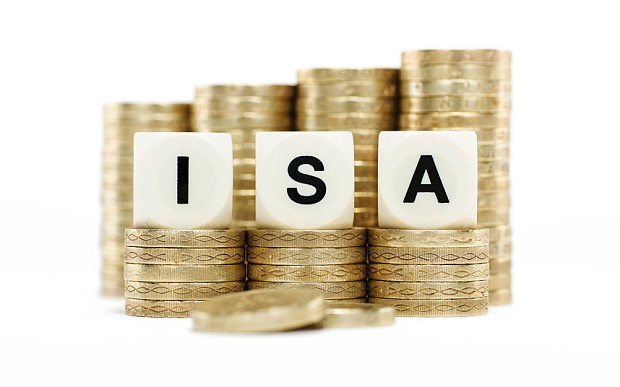Isa prices down 40pc: here is how to get a greater fee
Comment: Isa rates carry on to plunge just as savers’ allowances rise, but you can beat the banking institutions at their very own game 
Photograph: Alamy
Several of Britain’s most significant banking institutions just don’t want savers’ money. And nowhere is this far more evident than in the tumbling costs paid on common shorter-phrase fixed-rate deposits.
Over the previous 3 many years, for instance, the typical rate on a one particular-12 months cash Isa has fallen by 40pc. This at a time when interest prices in common are expected to rise, and just as the much more generous “new” Isa (or “Nisa”) allowances ushered in by George Osborne’s “savers’ Budget” take result.
Other kinds of financial savings account have fared worse. There has been a 60pc fall in the curiosity paid on 1-yr fixed-rate bonds over the previous five years, for instance – and all that in the course of a time period when Bank Price has remained unchanged.
The crunch in prices has been so serious that it is transformed the cost savings landscape, resulting in striking anomalies in what savers can assume to earn from various types of account.
For instance, six recent accounts now spend more than twice the curiosity savers earn when they tie their funds up in the common a single-12 months bond.
Related Articles
-
Exactly where to locate the best cash ‘Super Isa’ rates
26 Aug 2014
-
What to place in your new £15,000 super Isa
03 Jul 2014
-
Chaos engulfs ‘Nisa’ switches
twelve Might 2014
-
Banking institutions continue to cull super Isa costs
twelve Aug 2014
-
Patient savers hit by rate purge ahead of ‘super Isas’
16 Jun 2014
Typical prices fall just as George Osborne’s Isa reforms take impact
And there are eight current accounts having to pay a lot more than 4 times the interest you’d earn on the typical easy-access financial savings account.
Present accounts having to pay 4 occasions the charge of the typical financial savings account? Yes, it sounds wrong, it’s unprecedented and it flies in the encounter of logic. But it is the case.
Historically, present accounts have paid no or negligible interest on credit balances. That is supposedly because account holders can withdraw every little thing at any second – and have the ease of chequebooks and debit cards with which to do it. Fixed-rate bonds, on the other hand, traditionally pay a lot more curiosity since savers have agreed to depart their money untouched for the benefit of the financial institution.
Not these days.
The charges paid on the average shorter-phrase bond (a single or two 12 months) and on effortless-access accounts are their lowest in history and falling.
Even though Financial institution Fee is predicted to start rising some time amongst the end of this 12 months and spring 2015, these bond rates have actually seasoned most of their downward movement in just the past 12 months – and they carry on to drop.
Among March 2009, when Bank Fee fell to .5pc, and December 2012, the average price paid on one particular-year deposits never moved under 2pc gross. Then in January 2013 it dipped below 2pc for the initial time, registering one.91pc.
There followed a series of precipitous falls. By January this year the price for one particular-yr income had dropped to one.46pc. The most recent figure, for July, stands at one.19pc.
>> A lot more: Very best money Isa ‘Nisa’ rates
Overlook the norm, and alter your cost savings habit to the new world order
The explanations for plunging rates are widely talked about. Government funding schemes are one significant purpose. With accessibility to taxpayer-presented funds, banks had little need to have to tap up money from men and women. Numerous conventional banks haven’t wanted to increase their lending in any case.
But banking is modifying, and there is competition in some places. 1 is present accounts. A lot of banking institutions do want to develop this element of their organization, which is why present account offers supply desirable interest on balances, though you need to have to operate the system for optimum returns.
Nationwide’s FlexDirect pays 5pc on balances up to £2,500 for one particular year, and 1pc thereafter. Tesco Bank pays 3pc on balances up to £3,000 TSB pays 5pc up to £2,000 and Lloyds, by way of its Club Account, pays tiered prices of up to 4pc. Sound also very good to be real? Yes, there are catches, and to benefit in any meaningful way from these rates savers will have to be extremely organised.
An different is to target on banking’s newer, expanding brand names.
I looked back at the initial very best acquire listing of every single of the eight months so far this yr. In the complete of 40 entries for greatest fixed financial savings prices proven (there are five in every single table and I looked at a sample of eight), not 1 major British higher street financial institution featured even as soon as. Only one standard developing society featured, and then fleetingly: the Nottingham. The rest of the slots have been occupied by new names such as Shawbrook, Safe Trust, United Bank Uk, FirstSave, Aldermore, ICICI, Financial institution of Baroda and so on.
There is only a single sure-fire continual when it comes to banking institutions: whatever they say, they put their own interests first. If that means acting contrary to purpose or “norm” – by, for instance, paying out a lot more to present account holders than to long-phrase depositors, or paying leading charges to capture market place share (as many of the new entrants are possessing to do), so be it. To win in this game depositors require to be on guard, sceptical and opportunistic.
It also helps to be informed. So if you haven’t but, do indicator up to our weekly Funds newsletter : enter your e mail handle here.
•
